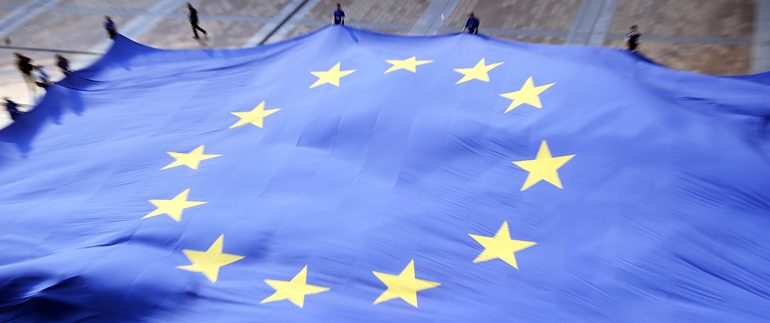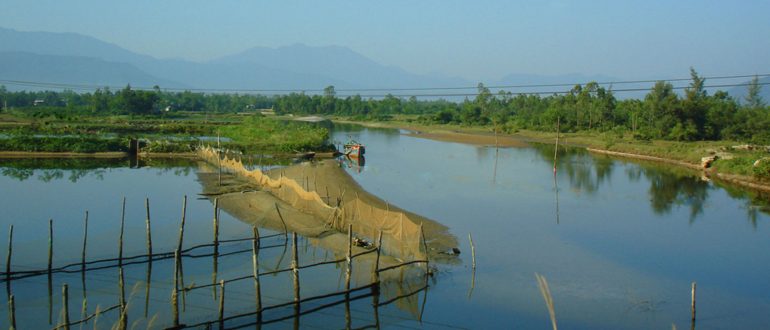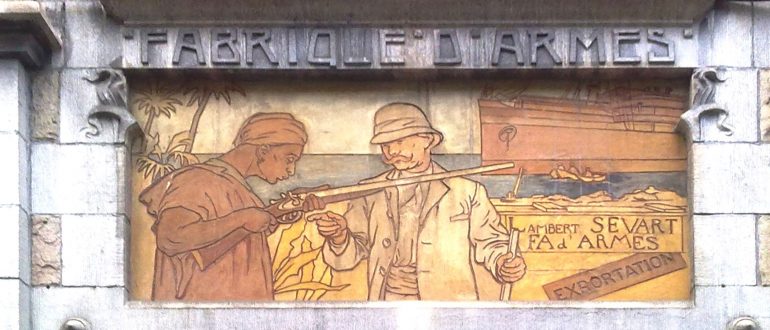The European Union on its way to a political and economic Union
What are the answers to the current crisis of Europe? José Manuel Barroso, President of the European Commission, gave an inspiring speech regarding the issue at Bucerius Law School, Hamburg, on 24th February 2012 – as a member of the executive board, Alexander Pyka represented CISS at the event. Mr. Barroso kindly agreed to submit his speech to CISS.eu for consideration and further discussion.
Jose Manuel Barroso © European Commission
President Schmidt, Director Wenzler, Herr Lahnstein, Herr Schmidt, It is a great pleasure to be here.
This school has in the last 13 years grown from nothing into the one of the foremost law schools in Germany and indeed Europe. This sense of ambition and the pursuit of excellence are qualities which we all need in abundance in these difficult times.
I am particularly pleased to be addressing you for two reasons:
First, I am myself a lawyer by education; Our European Union is a Union of values, a Union of peoples but it is also a Union of law: established by treaty and whose scope of action is delimited by law. Second, addressing this audience in this city is symbolic of the importance of the work, the challenges and the opportunities which Europe faces. Hamburg is a city build on openness, of trade of people of ideas. It is this openness which is the foundation not only of this city but of the European Union as a whole. Hamburg’s challenge is our challenge, to build on our past achievements to construct a better future. A future which is yours to benefit from but also yours to help shape. I know that much has changed for students since I undertook my own studies but there is always one element of student life which will never change: exams. I would therefore structure my intervention around three questions.
1. Is this the time to be considering political and economic union?
2. How far do we need to go in building economic union?
3. Is a political union the natural counterpart of economic union?
Let me turn to the first of these questions, in the current economic climate: Is this the time to be considering Political and economic union? I would argue that this is precisely the moment where we should be looking to the long term, as only by doing this can we find a sustainable solution to the crisis, a solution which builds a European Union for the future. The immediate challenges we face are threefold. Unsustainable levels of public debt, high public debt, and an overall lack of competitiveness. We can and are taking short term measures to relieve the immediate impact. However, all are structural issues which require longer term solutions.
I believe the solution lies in more Europe not less Europe. This has always been a feature of the European Union: to maximise the benefits to our citizens it is necessary to engage in deeper integration. For example, in the 1970s the common market could not deliver all the benefits which we expected and we were faced with what became know as eurosclerosis. For you this is a term found in the history books, but at the time it was viewed as a deadly threat to Europe and its future prosperity. The solution was the internal market, a deepening of integration to see further benefits for all our citizens. In turn, the single currency was envisaged as a complementary action to bring further benefits aging. This is the cumulative logic of integration. Since the onset of the current crisis the European Commission has seen clearly that the solution is a deepening of our economic integration: We have monetary union and we need to move towards economic union.
This leads me to the second question: 2. How far do we need to go in building economic union? As I have already mentioned, we have a long term vision but this must be based on short term stability. We are pursuing a strategy which will achieve this, a strategy which will allow for long term structural reform rather than the illusion of a quick fix. There are 6 elements within the strategy. First, we are bringing order to public finances in Europe while maintaining expenditure in fields which will stimulate future growth. What we call “smart fiscal consolidation”. Second, measures to boost growth and employment. Our economies need to be more competitive and we need to support reforms which will achieve this. For example, targeted investment, deepening the internal market and support for employment in particular measures to combat youth unemployment. Such measures were discussed and agreed at the informal European summit on 30 January.
Third, support for, and reform of, the financial sector. A strong functioning financial sector is important for us all. The use of stress tests to identify weak institutions and recapitalisation and restructuring of banks will help restore liquidity and lending to the system. This in turn will help support economic growth. In parallel, we are putting in place a stringent regime of regulation to ensure that the errors of the past are not repeated. Fourth, we must be in a position to support and defend those member states that may be vulnerable to short term speculation as they undertake long term reform. To achieve this we have created financed and flexible firewalls: in the short term the European Financial Stabilisation Fund and as of next year the permanent European Stability Mechanism. Fifth, we are closer to achieving a lasting solution to the Greek debt crisis. It is not easy, in the current situation there are no easy solutions or quick fixes but the steps being taken by Greece will bring long term benefits. [The Greek government and the Greek people have taken a courageous decision to deal with their structural issues. The rest of the Euro zone has recognised this through an act of collective solidarity the like of which we have never seen. In this I acknowledge the role which Germany has played. It is such solidarity which underpins our Union and which will enable us to build for the future together.]
Finally we are taking steps to ensure stronger and more effective European governance. In so doing we are seeking to fill in the missing pieces of economic and monetary union: a more stringent system of economic co-ordination, of oversight and enforcement with a joint defence system. In the longer term there is the prospect of joint debt issuance. Brick by brick we are completing the structure of the economic and monetary union.
These measures are far reaching and will involve far greater scrutiny of our member states and their actions. This raises the question of democratic accountability?
As my third question asks 3. Is a political union the natural counterpart of economic union? First, some would claim that the European Union is undemocratic especially in its handling of the crisis. I utterly reject this point of view. There is no single universal model of what a democracy should be like; indeed our 27 member states have 27 different models. The European Union itself is a 28th democratic model. We have a directly elected parliament, elected by the second largest democratic electorate in the world after India’s. Let me tell you something else – I was in India earlier this month and I discovered that the Indian parliament work in one official language, Hindi, our parliament works in all 23 official languages of the European Union. There is no linguistic barrier to becoming an MEP and representing your electorate. We have a Council which consists of representatives of each of the directly elected national governments of the European Union’s member states. As for the Commission, this is selected by the democratically elected governments and the selection approved, after public hearing, by the directly elected parliament. Our work is then under the public scrutiny of the same parliament. In addition we have institutions, the Economic and Social Committee and the Committee of the Regions that ensure the social partners and key stakeholders have a legally defined voice in the elaboration of European policy.
This may be a unique structure but the European Union is a unique organisation. It is also a democratic organisation. It is for this reason that I have insisted on the role of the Community method and the institutions of the Union in the negotiations on the Treaty on Stability Co-ordination and governance in the economic and monetary union. I regret that this is a treaty of 25 and not 27, however, it is important that the signatories have shown the necessary solidarity to seek to work together to put the crisis behind us. Moreover, the proper role of the European Union’s institutions has been maintained including that of democratic oversight. Of course as the European Union evolves and as our societies evolve, so to must our democratic structures. The European Union has done so in the past, for example with direct elections to the European parliament in 1979, and it is doing so now through the Lisbon treaty. This foresees a reinforcement of relations between national parliaments and the European parliament. Moreover through the citizens’ initiative which will be launched in April it gives a stronger more direct voice to citizens in contributing to the European agenda.
[I have mentioned the past and the present but I am sure you want to hear more about the future of political union, especially given recent comments by your own Chancellor. However, as lawyers, one important lesson to learn is that you may not always hear what you wish to hear! I have always worked gladly within the competences and role as President of the Commission and it is not for a current President to speculate as to the role, functions or method of election of his successors. I leave that debate to others, although, I of course watch it with great interest.]
In 1953 Thomas Mann made a famous speech here in Hamburg to an audience of students, the central theme, the place of Germany in Europe was picked up by another Hamburg institution Der Spiegel in a recent article by Timothy Garten Ash. I have not sought to answer the same question directly today. Rather I have set out an idea of a Europe of the future in which we all can find a place, a Europe which is stronger, a Europe which is able to meet the global challenges of the years to come. This idea is one which I hold close to me: it is in Mann’s words; an idea which I find expressed everywhere, an idea I can even smell. Thank you.
José Manuel Barroso
President of the European Commission
You can see a video of the speech [here].



